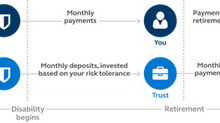Are Women Ready For This?
- Nov 18, 2019
- 2 min read
[if gte vml 1]><v:shapetype id="_x0000_t75" coordsize="21600,21600" o:spt="75" o:preferrelative="t" path="m@4@5l@4@11@9@11@9@5xe" filled="f" stroked="f"> <v:stroke joinstyle="miter"></v:stroke> <v:formulas> <v:f eqn="if lineDrawn pixelLineWidth 0"></v:f> <v:f eqn="sum @0 1 0"></v:f> <v:f eqn="sum 0 0 @1"></v:f> <v:f eqn="prod @2 1 2"></v:f> <v:f eqn="prod @3 21600 pixelWidth"></v:f> <v:f eqn="prod @3 21600 pixelHeight"></v:f> <v:f eqn="sum @0 0 1"></v:f> <v:f eqn="prod @6 1 2"></v:f> <v:f eqn="prod @7 21600 pixelWidth"></v:f> <v:f eqn="sum @8 21600 0"></v:f> <v:f eqn="prod @7 21600 pixelHeight"></v:f> <v:f eqn="sum @10 21600 0"></v:f> </v:formulas> <v:path o:extrusionok="f" gradientshapeok="t" o:connecttype="rect"></v:path> <o:lock v:ext="edit" aspectratio="t"></o:lock> </v:shapetype><v:shape id="Picture_x0020_1" o:spid="_x0000_s1026" type="#_x0000_t75" style='position:absolute;left:0;text-align:left;margin-left:-9pt;margin-top:375.5pt; width:122.4pt;height:91.8pt;z-index:-251670528;visibility:visible; mso-wrap-style:square;mso-width-percent:0;mso-height-percent:0; mso-wrap-distance-left:9pt;mso-wrap-distance-top:0;mso-wrap-distance-right:9pt; mso-wrap-distance-bottom:0;mso-position-horizontal:absolute; mso-position-horizontal-relative:text;mso-position-vertical:absolute; mso-position-vertical-relative:page;mso-width-percent:0;mso-height-percent:0; mso-width-relative:margin;mso-height-relative:margin'> <v:imagedata src="file:///C:\Users\BRENTL~1\AppData\Local\Temp\msohtmlclip1\01\clip_image001.jpg" o:title=""></v:imagedata> <o:lock v:ext="edit" aspectratio="f"></o:lock> <w:wrap type="tight" anchory="page"></w:wrap> <w:anchorlock></w:anchorlock> </v:shape><![endif][if !vml][endif]Too often, women do not adequately plan ahead for LTC needs. Research shows that 75 percent of caregiving support in the U.S. is provided by family members. Of unpaid caregivers, 66 percent are women. They step in for spouses, parents, in-laws and friends as health providers, care managers, companions and advocates. On average, they provide 20 hours of weekly support, sacrificing nearly $660,000 in lifetime income to meet others’ needs.
But the sacrifices don’t end there. A national study of unpaid women caregivers finds that:
[if !supportLists]- [endif]33% reduce their working hours
[if !supportLists]- [endif]29% pass up a promotion, training or assignment
[if !supportLists]- [endif]22% take a leave of absence
[if !supportLists]- [endif]20% switch from full- to part-time employment
These statistics don’t tell the complete story. Every number represents lives impacted by LTC. A wife who puts a thriving career on hold to care for an ailing spouse- A daughter who visits her aging parents daily to cook, clean and maintain the home- A mother helping a convalescing son after a car accident. Women give up so much for the ones they love.
Women today have a greater risk of needing LTC services and becoming unpaid caregivers. It’s an important time for women to develop an LTC strategy to help preserve their family, career, lifestyle, health and total financial future.








































Comments